
Hongbo Dai (Photo by Bill Roa)
Private Support Provides Opportunities, Changes Lives
The impact of philanthropic gifts to Georgia Perimeter College is not just seen in dollars.
It is visible in faces. It is found in lives.
Gifts to the GPC Foundation are transformed to fill needs. They provide time—time for students to spend on nursing clinicals instead of on waiting tables, time for studying accounting instead of maintaining lawns, time to learn how to write fiction instead of walking dogs.
Gifts turn into textbooks for students, professional development for faculty and even an opportunity for chorale members to perform at Carnegie Hall. Donations can evolve into computers, buildings and campuses. For many students, philanthropy is what makes a college degree possible. Such support has never been more important.
Economic challenges and budget realities have dramatically cut government funding for higher education. Since 1999, Georgia Perimeter College’s state funding has declined from 68 percent to 40 percent of its budget, while the number of students turning to GPC almost doubled, according to GPC’s budget office.
Georgia Perimeter College enrolled 14,000 students and received $46 million in state appropriations in 1999. In fiscal 2012, enrollment surpassed 26,000, but the college received only $50 million from state appropriations. The per-student state support dropped from $3,300 to $1,900, according to the budget office..
In response, the college has tightened its budget. Eighty-two percent of that budget is made up of people, 90 percent of whom interact with students directly or impact the environment in which students learn, says Gerspacher. Students also are bearing the burden of reductions in the state’s HOPE scholarship program, as well as increases in tuitions and fees.
The economic woes causing these changes also have tightened the financial reins on businesses and individuals. Yet it is the support from private citizens, community leaders, corporations and philanthropic foundations that has allowed Georgia Perimeter to meet growing student needs.
In the last five years, the college’s Foundation has awarded more than 1,350 scholarships provided by donors, says Felicia Lewis, GPC’s coordinator of scholarships. “Those are 1,350 lives changed,” she says.
There is no single reason for philanthropy, says Tracey Knight, GPC’s director of strategic partnerships for access programs. Gifts come from faculty, staff, retirees, neighbors, alumni, medical professionals, corporate partners, communities and private citizens. “We even have students who give,” Knight says.
The role of philanthropy has grown as GPC has evolved from a small community college to the third largest institution in the University System of Georgia, Knight says. Georgia Perimeter College’s influence in individual lives, in communities and in the state of Georgia is significant, she says. “And everyone at the college, from a work-study student to the president, plays a role in this,” she says.
While the underlying goal of a contribution is to help students receive a quality education, motivations differ. Some people want to honor or memorialize a loved one, some give to support the general work of GPC, and others give in response to a specific need.
In the following pages, Georgia Perimeter students, faculty, alumni, retirees and staff discuss their experiences with and thoughts on giving and the impact it can yield.
A few years ago, Eric Ramirez made a decision to change the course of his life and go to college. Just months ago, the 31-year-old Georgia Perimeter College student received unexpected news that helped him to know he is on the right track.
Ramirez was notified by the Georgia Perimeter College Foundation last summer that he had been chosen for a scholarship, the Helen Friese/Village Writers’ Group Award for Fiction.
“I got a phone call from the Foundation telling me that I had won this award. I didn’t know anything about it. My creative writing professor had submitted my portfolio … and they liked it so much. I got their comments in an email, and they said, hands down, my story was the best.”
It could not have come at a better time.
“I wasn’t planning on attending school last fall semester because I didn’t feel like I was in a financial situation to be able to afford to go,” Ramirez says. “And so, getting this phone call out of the blue. it was an exciting surprise, and it made me feel very excited about coming back in the fall.”
Until recently, Ramirez had not really thought of himself as a writer. He planned to major in film.
“I‘ve always made up stories, and I always felt like I would be behind the camera filming them,” he says. “I never thought about putting them down on paper and having somebody read them or having them published. Having won this award and getting this kind of feedback was making me feel like maybe this is something I should explore.”
He’s doing just that. He has continued writing and collaborated with local performing troupes.
“So I’ve seen what I wrote being performed, which is pretty amazing!” he says.
Earlier in his life, Ramirez was not interested in school. Academics were not a priority in his family, and he didn’t take high school seriously. So his teachers didn’t encourage him either. He doesn’t blame them.
“I wasn’t really present, mentally or physically,” he says.
After he graduated, he traveled, enjoyed being young, then took a job. But he decided at age 26 that he should reconsider college. He’s been taking classes, while also working small jobs, ever since.
Eric Ramirez – GPC Foundation on Vimeo.
You can find Adam Stone quoted in a news story, offering background or perspective on a topical issue. You can find him in research and as co-editor of a scholarly journal.
But in the classroom—that’s where Stone, associate professor of political science at Georgia Perimeter College, really feels at home.
“My first love is my teaching,” Stone says. “It’s important to stay engaged in research, but the teaching—how we can teach students and how we can work with the community, and students can learn— that’s what I do. … And our students need that. We are a teaching college. That is what is so beautiful about GPC.”
Stone witnessed the impact of GPC in a very personal way through the life of his first wife, Pamela Hecht, who was a student and later an instructor at the college.
Hecht already had a business degree when she came to Georgia Perimeter to study foreign languages and sharpen her skills to go to law school, Stone says. She was inspired by her GPC professors and went on to become an attorney and practice law. But the experience she seemed to cherish was the opportunity to later come back to GPC and teach The Environment of Business, a course that incorporates components of business law, Stone says.
Hecht was diagnosed with cancer, and she died in 2008.
“She just loved the classroom,” Stone says. “She said to me later in her illness that teaching really completed her legal career. Yes, she had practiced real estate law and gone to court and argued and won an appellate case, but that legacy [of teaching] was really important to her.
Stone has been a longtime supporter of the Georgia Perimeter Foundation and all it does for students and faculty development. In Pamela Hecht’s memory, he created a scholarship for non-traditional students who plan to pursue law as a career.
“It was important to me to give back—giving back to faculty, to students, to staff, it doesn’t matter, just giving back to the institution of which I am a part.”
“This institution means so much to me. It has not been just my work life, but my life.”
Adam Stone – GPC Foundation on Vimeo.
Chris Baker knows what a scholarship means to a Georgia Perimeter College student.
It means fewer hours working before and after class. It means less loan money to repay. It means more time and energy for studies.
Baker, now a professional accountant with a regional accounting firm, graduated from GPC in 2003 and is a member of GPC’s alumni board. He remembers associate professor Ellen Sweatt encouraging him to apply for a Georgia Society of CPAs scholarship and how grateful he was.
While at GPC, Baker ran a lawn service to earn money for school. It was hard work, so he appreciated the scholarship.
“In a scholastic sense, it helps you get the grades,” he says. “You focus on your grades, and that eventually allows you to get into the program you want to get into.”
After earning his associate degree at Georgia Perimeter, Baker attended the University of Georgia and graduated from Georgia State University. He says his time at GPC was well spent.
“The transformation while here was learning time management,” Baker says. “Being at a two-year institution, the classroom size was smaller, which provided a more one-on-one educational experience with professors. It provided a platform to learn time management and figure out the best study methods in an unsupervised environment. I think that was a good segue into a four-year college, where there are more people, more distractions, more chances to not focus.”
Now, Baker is supporting the college where he got his start. He’s giving his time and energy to the alumni association. And he gives to the GPC Foundation to help the college continue its work with other students.
“I just wanted to give back,” Baker says. “It’s a college I graduated from, and it accepted me without hesitation. I was able to succeed and use the school as a stepping stone to where I am today. … The least I could do is pay it back.”
Chris Baker – GPC Foundation on Vimeo.
In China, Hongbo Dai’s parents had arranged a “decent” job for her, working for the government in the local courts. Arranged jobs are tradition there, she says. But Dai’s heart wasn’t in it. Since childhood, she had wanted to work in medicine, following the model of her mother, a doctor.
Dai’s future changed when she met the man who would become her husband. He was studying in the United States, so Dai came to this country in 2008, married him and started anew.
“I feel freedom,” says Dai. “I can choose my favorite major, and I can choose to start my life again. I can choose my new life, not the one my parents arranged for me. So I’m happy here.”
What Dai chose was Georgia Perimeter College.
“It had a highly reputable nursing program” she says. She decided to combine her passion for medicine with the natural rapport she enjoys with children and become a pediatric nurse. She thinks her patience and ability to listen will help parents, who can be emotional and overwhelmed when their child is ill.
Dai, 31, threw herself into the work, memorizing the names of pharmaceuticals before breakfast, going to classes, and studying—all the while improving her English and learning about American culture. She tried to find a job as well, but a $2,500 scholarship from the National Association of Chinese Americans made that unnecessary.
“The NACA scholarship means I can spend more time on my studies and less time worrying about my finances,” Dai says. “It also inspires me to succeed in the nursing program. Without the NACA scholarship, my dream would vanish.”
She says she hopes to return the support in the future, by helping striving students.
Dai, who graduates this spring, says GPC’s nursing faculty members are supportive and patient and have helped her build her knowledge and skills.
“I feel very confident right now, especially when we have the clinical rotations in the hospital when I treat the real patients,” she says. “I feel, ‘oh, I can
do that because we have already practiced it a lot at school.’”
Hongbo Dai – GPC Foundation on Vimeo.
As director of customer service at Georgia Perimeter College, Fran Mohr is committed to helping students.
A new GPC Contact Center she established allows callers to receive answers to a variety of questions about different programs, services and campuses with a single call. The results have been impressive. The center answered 357,047 calls in its first 17 months and achieved a customer satisfaction rate of 99.37 percent. Its performance won it a University System of Georgia Chancellor’s Award in 2010, although the center had been open only four months.
“I’ve been amazed with how quickly the GPC community has embraced the whole concept of a contact center, which is a fairly unique department for higher education,” Mohr says. “And we have become a model for a number of other colleges and universities who have come to visit our center. … It has become a great model of excellence.”
The success is a reflection of the entire college, Mohr says. “We have partners in all the departments that serve students, and without the teamwork, it would not be possible.”
The passion Mohr exhibits for professionally supporting students is equaled by her personal support of them. She serves on scholarship selection committees and donates regularly to the GPC Foundation.
“The Foundation is the foundation of the college,” Mohr says. “It makes such a difference to have a program in which we as employees can help support students in a monetary fashion. … Giving a few dollars a month is such a small way to support them, but it makes a huge, huge difference to them.”
“It is part of investing in the community in which I work and in which I serve,” Mohr says.
Fran Mohr – GPC Foundation on Vimeo.
Reaching out to students, going the extra mile, has always been a hallmark of Georgia Perimeter College’s faculty. Dr. Ron Swofford, former English professor and academic dean at GPC and the first president of the 2-year-old GPC/DeKalb College Retiree Association, has seen it many times.
In addition to classroom work, faculty members give presentations, develop special programs and offer personal support to students.
Swofford tells of a colleague who discovered a troubled, young student in Joint Enrollment (now known as Dual Enrollment). The student was dealing with the recent suicide of his mother. The professor provided support and eventually recommended him for a private college. Years later, she learned he had risen to a high-ranking position in the federal government. But it started with the professor caring enough to reach out.
That level of dedication is why the retiree association, which is less than three years old, has already brought in nearly 100 members, established and funded a scholarship fund and awarded two student scholarships. It is well on its way to endowing that scholarship.
“We wanted to set up something permanent.” Swofford says. “Students are what colleges are about.”
Swofford has long believed in the role of two-year colleges in general and in the important mission of Georgia Perimeter College, specifically.
“The college always has been about access—geographical access, academic access. It’s a college of opportunity, and that is what it should be,” Swofford says. Creating new programs is part of that, he says.
“DeKalb College and, now GPC, has been probably one of the most innovative colleges in Georgia,” says Swofford. “A lot of things were done here before they were tried at other institutions.”
Joint Enrollment, campus development and a strong two-year Honors program are just a few examples he was involved in while at GPC.
“The GPC Foundation is important because it provides a way for people to give, to invest in what the college is doing and to support students,” Swofford says.
The human capital of the university system makes our nation distinctive and envied worldwide, he says.
“And I think that we don’t appreciate it nearly as much as we should. … We need to invest in our colleges and universities a lot more than we do.”
Ron Swofford – GPC Foundation on Vimeo.
Carolyn Glenn learned early that education is more than a family affair.
It was a lesson ably taught by her grandfather, says Glenn, publisher of The Champion Newspaper and former chair of the Georgia Perimeter College Foundation.
In the rural Georgia community where her mother grew up, there was no school. Her grandfather could afford to send his children to a distant school, but he knew his neighbors could not. So he built a two-room school in his community, donated it to the school system and promised to handle all maintenance on the building, including making a fire in the potbellied stove each morning. He did this so that the children in his community had access to an education.
“I learned very early from him and from my aunts and uncles that education is key, and you do everything you can in your power to make sure that you are educated and that those who follow you are educated—not only your family, but your community as well,” says Glenn.
The philosophy was held so dear that four of Glenn’s aunts became educators. Glenn followed suit and trained as a business teacher before she shifted to her career in journalism. But she has carried that philosophy with her, transferring it to her support of Georgia Perimeter College.
Glenn’s support includes her gifts of time and energy to serve on and lead the Foundation board. Her support also includes financial contributions to the Foundation and the programs it supports.
GPC earned her support because it provides a quality education with award-winning faculty who are committed to teaching students, she says. Businesses in the community are eager to hire GPC graduates, and the college offers the best value for students, she says. Georgia Perimeter College also offers something many other institutions do not, says Glenn. It provides access—an open door to a college education for students from all backgrounds and experiences.
“I grew up in rural Georgia in a segregated South, and I grew up when there was not a lot of access for a black child,” she says. “But I had teachers and church members and community members who encouraged me, who showed me that there was a bigger world out there. … They inspired me; when there was no access close to me, they helped me to find a way to get to the place that I wanted to be.”
”It’s so great that, now, access is available. With Georgia Perimeter being the largest access institution in the state, and it’s located right here in our county and our region, we’re just the beneficiaries of something really great,” Glenn says.
“Giving back to the Foundation is near the top of my list because our children are our future,” Glenn says. “They are going to be our future politicians, our future scientists, and it’s imperative that we do everything we can to make sure that they are successful—for our county to be successful, for our country to be successful, for our families to be successful.”
Carolyn Glenn – GPC Foundation on Vimeo.
Monique Burts is fluent in French. She knows some German, Spanish and Haitian-Creole. She is learning Italian and has mastered her Russian alphabet. Not surprisingly, her goal is to be an interpreter.
“I like languages, and they come somewhat easily to me,” says Burts.
At age 18, Burts is ahead of the pack. She graduated in December with an Associate of Arts in Foreign Language, a concentration in Business and an International Certificate. She continues to study at Georgia Perimeter College for organ and bassoon lessons.
Burts was a Dual Enrollment student at GPC during her senior year of high school. She tallied up 43 college credits by the time she received her high school diploma in May 2011. She also received the Grace McNamara Dual Enrollment Scholarship at GPC.
GPC was a good fit, says Burts.
“I felt as if (high school) classes were not preparing me for my goal of being an interpreter,” she says. “I wanted to get a head start in my career.”
That career is something about which Monique is passionate. Last summer, she spent more than two weeks in Paris and London and was able to use her French regularly. It was the “highlight” of her life.
“That was really eye-opening. I could start to really imagine what life would be like fully immersed in another language.”
She liked the image and is researching domestic and international positions for interpreting in conjunction with legal, medical, business or tourism work.
“I want to show that in my own small way, that I can help the world,” she says. “Because I doubt I will become a doctor or lawyer or some great activist—but at least when you interpret, you can still help someone on an individual basis … and that’s worth it for me.”
Receiving the scholarship was a financial blessing, she says. But it brought other benefits as well.
“I felt like I actually had a place in the college, that all the work I had put into making sure I kept my GPA up, making sure that I made it into GPC, that someone took notice of it, that it hadn’t been in vain.”
Those who provide funding for scholarships should be aware of the impact of their generosity, she says.
“Just looking through the Foundation’s scholarships, it was amazing how many people have chosen to give of themselves to help individual students at a community college,” Burts says.
“Even the thought that Dr. Grace McNamara wanted to help individual students who specifically are from high school and in the Dual Enrollment program—that she even thought of us—that was encouraging.”
Monique Burts – GPC Foundation on Vimeo.
Bonus Video: Betty Molloy – GPC Foundation on Vimeo.
For more information about giving to GPC, visit the Georgia Perimeter College Foundation website.



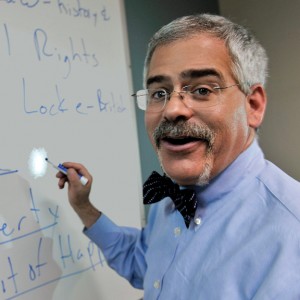
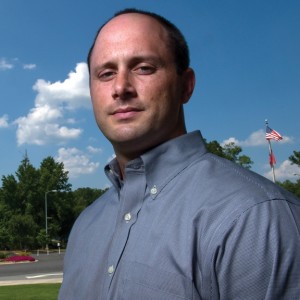

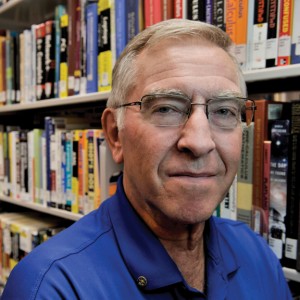


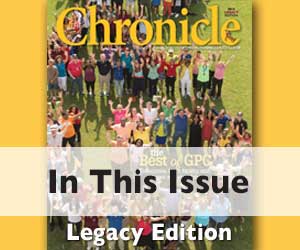


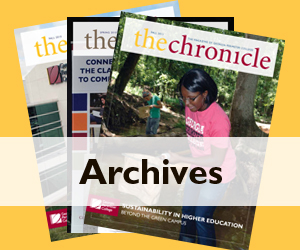

No Comments on “The Impact of Giving”